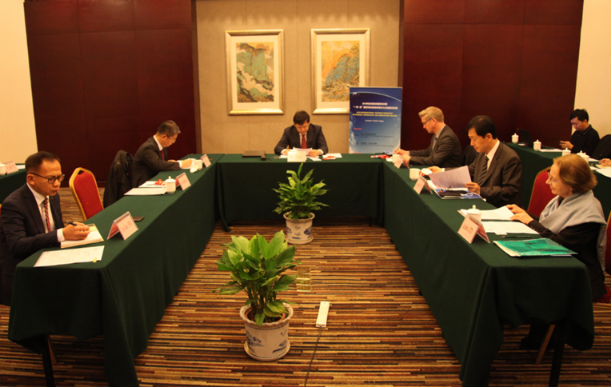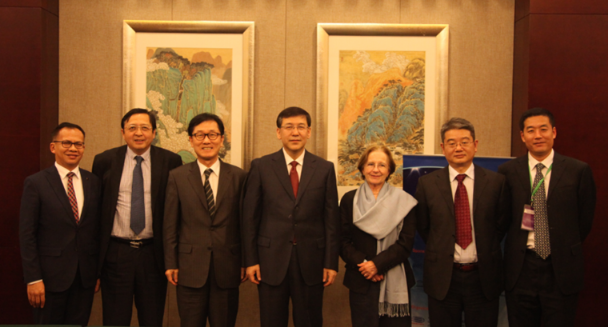On November 1, 2016, the 4th meeting of the 1st Governing Board of the International Research and Training Center for Science and Technology Strategy (CISTRAT) under the Auspices of UNESCO took place in Beijing. Yin Hejun, Vice Minister of Science and Technology of China, chaired the meeting as the Chairman of the Governing Board.

At the meeting, Hu Zhijian, CASTED President and CISTRAT Executive Director, reported the work of CISTRAT in the past year and its work plan for the next year. The governing board members, including Ana Maria Cetto, Professor at the Institute of Physics, National Autonomous University of Mexico, Jong-guk Song, President of the Science and Technology Policy Institute (STEPI), and Hans Dencker Thulstrup, Programme Specialist for Natural Sciences of the UNESCO Beijing Office (representing Flavia Schlegel, Assistant Director-General for the Natural Sciences Sector of UNESCO), examined the work report and made suggestions regarding the work of the next year. The meeting was also attended by Yoslan Nur, Programme Specialist of UNESCO, and Wang Fenyu, Vice President of CASTED.
The governing board members affirmed the center’s work overall, and hoped that the center will in the next year further strengthen exchange and cooperation with other UNESCO Category 2 centers, and increase cooperation with regions outside Asia, especially “Belt and Road” regions and South America, build a research collaboration and training mechanism with long-term involvement of international scholars, and accumulate trainee and partner institute resources in order to lay a solid foundation for creating an international research collaboration platform and expanding the center’s international influence.
Yin Hejun, Vice Minister of Science and Technology, expressed thanks to the governing board members for their recognition and required the center to focus on three aspects in the next year: 1) expanding talent base through international training and maintaining communication with former trainees; 2) drawing on the experience of other domestic and overseas Category 2 centers to build the center into a more influential platform of international cooperation and provide new approaches and perspectives on the center’s S&T cooperation and exchange; and 3) making full preparation for the UNESCO evaluation of the center in the next year.


 No.8 Yuyuantan South Road, Haidian District, Beijing, 100038
No.8 Yuyuantan South Road, Haidian District, Beijing, 100038
 +8610 58884695 58884506
+8610 58884695 58884506
 +8610 58884678 58884588
+8610 58884678 58884588
 casted@casted.org.cn
casted@casted.org.cn
 http://www.casted.org.cn
http://www.casted.org.cn
